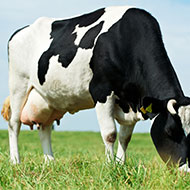
VMD informed of availability issues
The Veterinary Medicines Directorate (VMD) has been informed by Marketing Authorisation Holders (MAHs) of supply problems with certain lactating cow intramammary antibiotics.
The following is a list of lactating cow intramammary antibiotics that the VMD has noted availability problems with, along with anticipated resolution dates for each product:
| Product | Anticipated resolution date (subject to change) |
| Synulox Lactating Cow Intramammary Suspension (42058/4143) | To be confirmed |
| Tetra-Delta Intramammary Suspension (42058/4152) | February/March 2020 |
| Ubro Yellow Milking Cow Intramammary Suspension (08327/4305) | Product discontinued – no return date |
| Multiject IMM Intramammary Suspension (02000/4062) | May 2020 |
| Albiotic 330mg/100mg Intramammary Solution (30282/4035) | End of February 2020* |
| Mastiplan LC. 300mg/20mg Intramammary Suspension (01708/4534) | End of June 2020 |
| Cobactan MC Intramammary Suspension for Lactating Cows (42810/4000) | End of June 2020 |
These lactating cow intramammary products have been reported as available for veterinary surgeons to purchase:
- Ubrolexin Intramammary Suspension for Lactating dairy cows (08327/4306)
- Procapen Injector 3g intramammary suspension for cattle (24745/4023)
- Orbenin L.A. 200mg Intramammary Suspension (42058/4090)
- Pathocef 250mg Intramammary Suspension (42058/4094)
For further details on the supply situation for individual UK-authorised products, please contact the MAH or a wholesale dealer.
The VMD states that it supports and encourages responsible use of antibiotics. This however, requires veterinary surgeons to take into account, not only the most appropriate active substances, but also the most appropriate formulation, the posology, the current pattern of resistance in their locality, an awareness of how to reduce selection pressure and added requirements such as good biosecurity and husbandry.
If a veterinary surgeon can demonstrate that these steps have been taken, then VMD says cascade use of antibiotics may be considered.
Veterinary surgeons who wish to use an alternative product authorised outside of the UK to cover their immediate needs may submit an import certificate application to the VMD.
More information can be found on GOV.UK.
*In its latest update, the VMD revised its anticipated resolution date for Albiotic to the end of March 2020.



 RCVS Knowledge has welcomed Professor Peter Cockcroft as editor-in-chief for Veterinary Evidence.
RCVS Knowledge has welcomed Professor Peter Cockcroft as editor-in-chief for Veterinary Evidence.